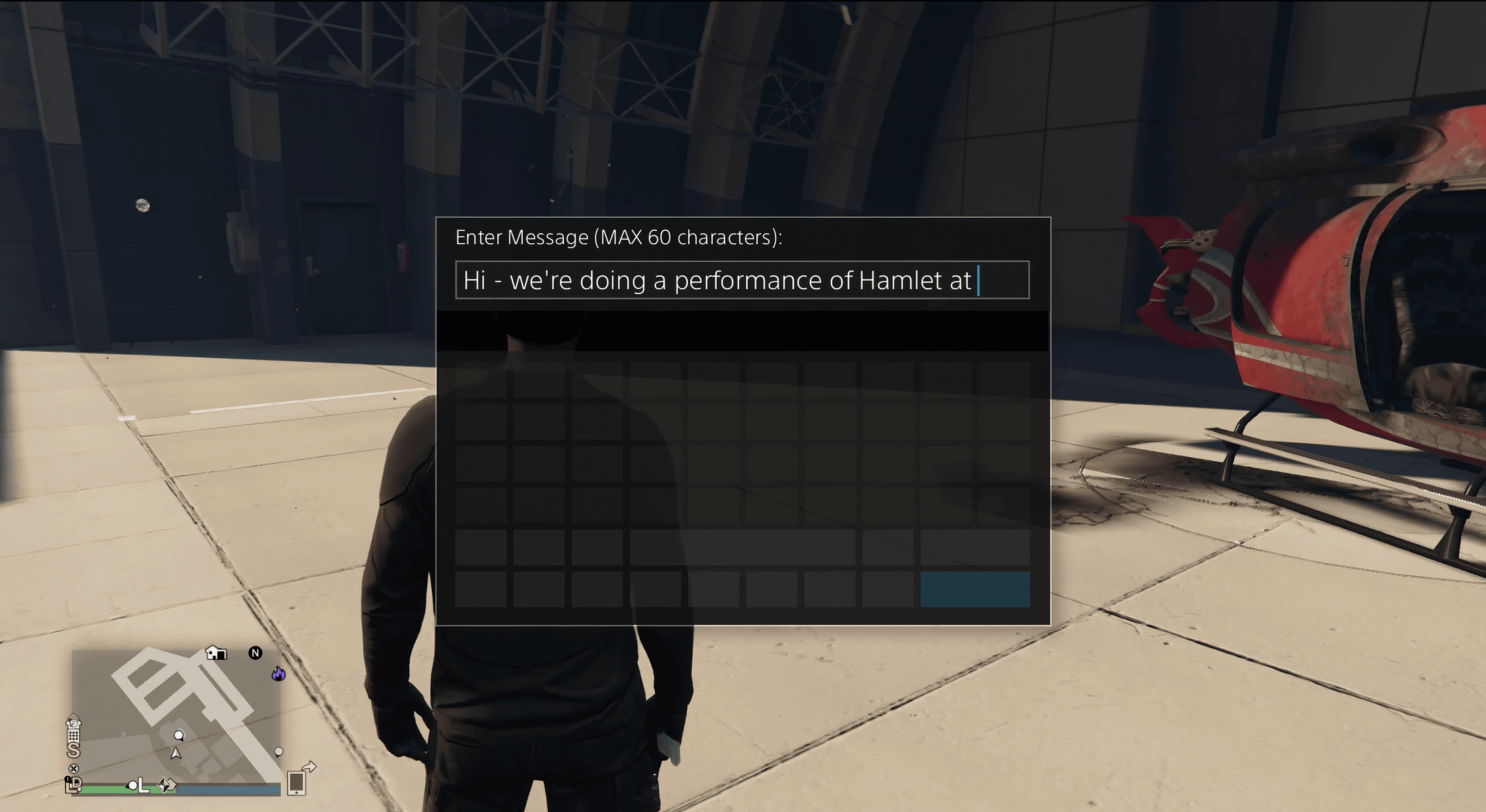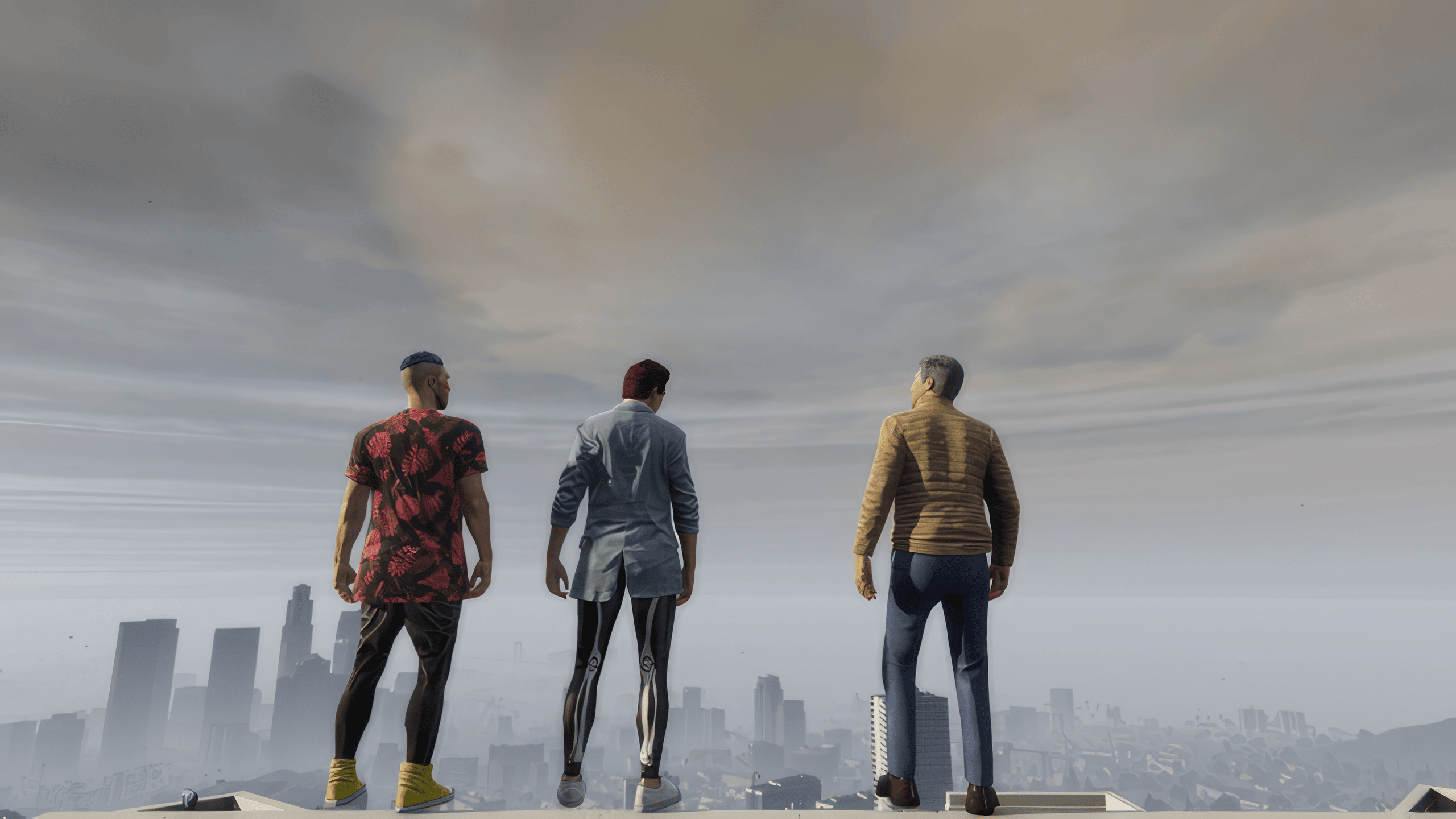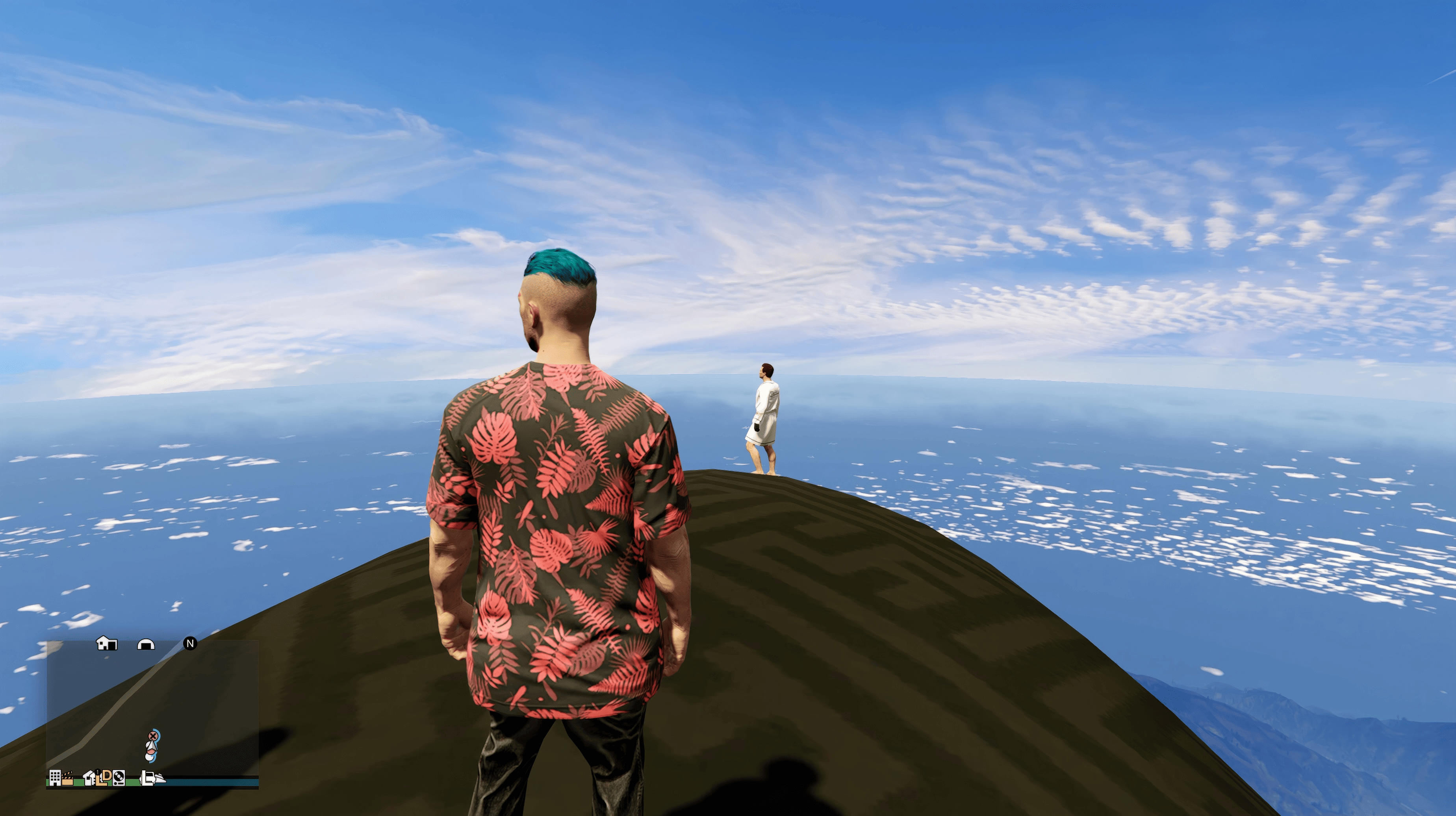GRAND THEFT HAMLET Interview: Sam Crane, Pinny Grylls Talk Their Innovative Doc, MUBI, Massively Multiplayer Promenade Performance

All the game world's a stage, and all the men and women online players, in Sam Crane and Pinny Grylls' festival-favourite documentary Grand Theft Hamlet. The film chronicles the unlikely quest of a group of pandemic-hampered actors to produce and perform a full production of Shakespeare's tragedy in the networked game world of Grand Theft Auto Online.
Grand Theft Hamlet heads back online this week, launching near-worldwide on MUBI -- a savvy pickup for the ever-expanding streamer. To celebrate their imminently-exploding playerbase, I sat down with the film's co-directors, husband and wife duo Sam Crane and Pinny Grylls, to discuss the artistic intersections their experiment engages, the new audiences it might attract, and the many joys of the bard's text and Rockstar's game.
ScreenAnarchy: Sam, you made a short a few years prior to GRAND THEFT HAMLET, WE ARE SUCH STUFF THAT DREAMS ARE MADE ON. Was the idea of spinning this process into a full-fledged documentary in your minds at that point?
Sam Crane: No, not when I was making that. After I'd made the short, I decided I wanted to stage a full production of Hamlet in GTA. It was once I'd had that idea that Pinny had the thought to make a documentary about it.
Pinny Grylls: I thought the short film was brilliant. It got shown in various places, and people wrote about it. It was interesting. It got me thinking, is there any way that we can work together to move to the next stage?
I'd been making films for fifteen to twenty years. I wanted to make something more cinematic, less 'YouTube-y'. The content is so brilliant, but we could really finesse the visual side of it.
Sam: Especially when you're making something long.The short was around ten minutes, which you can watch much like you watch raw gaming footage.
Pinny: Well, if you're under fifteen, you can watch hours and hours of it. But I think that, for a general audience, people don't want to go to the cinema and watch something that could be on YouTube. They want to see something that's groundbreaking in cinematic terms.
There's a moment in the film, Pinny, where you refer to performing the play as a 'run', as you would with a play. But you can also think of it as a 'run' in video game terms, in speedrunning language -- you're going through the game world ticking off objectives as you perform scene-by-scene. Was there a lot of rehearsal of moving from point-to-point in the game world before you performed? And did doing so feel like a speedrun?
Sam: We definitely rehearsed a lot. Probably not a lot when compared to doing a normal Shakespeare play. But yeah, we did think very carefully about that, how to get from point-to-point. A lot of the fun of it was really opening up the map of GTA and going to all the amazing locations.
Pinny: Doing a promenade.
Sam: Yeah, like a promenade performance. There was something about the whole thing that was like a mission in GTA, you know -- that your objective is to put on this production of Hamlet. There's definitely a connection there.
Pinny: I love the idea of them being players, but also players. They're players on the stage, but then there's 'play' within the play.
A lot has been written about the film in terms of your documenting of process, this question of "how does one go about performing Hamlet in GTA?". But once you get it fully up on its feet, it transforms the space -- that Los Santos setting becomes diegetic for the text.
I think of immersive theatre such as Punchdrunk in how the specifics of the space matters. How much were you thinking about GTA V's setting and what it means for the text and vice versa when you actually performed it?
Sam: It impacted our understanding of the play in a really interesting way. There are obviously practical possibilities in the game that you don't have in the real world.
It's all quite interestingly messy. You've got Hamlet, a medieval Danish prince filtered through an Elizabethan English playwright, filtered through a Scottish game development company's idea of America, [cast] in the context of the post-pandemic world that we're living in.
It all merged together into one thing that suddenly made a lot of sense. You've got Hamlet talking about "to be, or not to be" in this weird, precarious, ambiguous line between life and death. You place that in a video game where you die and then you respawn and come back. There's the reality of the video game world and how that's like the undiscovered country that Hamlet talks about on the other side of real life. There are all these fascinating connections that come about because of our decision to do it in this world.
There's a Machinima film festival, [Milan Machinima Festival], but this mode of filmmaking has never before reached the big screen on such a large scale. Who were you thinking your audience was once the film blew up beyond the initial festivals?
Pinny: When we did the auditions, [we established that] the Venn diagram between people who like Shakespeare and games is maybe quite small. But I think we knew there was something interesting about what we were doing. I've asked audiences who've come to Q&A's "why are you here?".
A fair number of them are into Shakespeare, a fair number of them are gamers. But a lot of them weren't interested in either, and just wanted to know what the hell this was. I guess they read about it and were like "I can't imagine that". Machinima has been going on for around twenty years, so many people know what it is. But, for many film buffs, this is completely new. I would be the same if I'd read about the film.
You've had a theatrical run, and now you're coming to MUBI. It's interesting, because it returns the film to the kind of viewing context that spawned it. MUBI is a far cry from Twitch, but how are you feeling about MUBI as a platform for the film and its discovery?
Pinny: I love it. If you want to watch some of the winners at Cannes, Toronto, SXSW, you come to MUBI. It's a really interesting space to have, because there are so many people that don't get to go to those festivals to see those films. And so many of those award-winning films don't get distribution. But it's a great place to go if you're into film.
Sam: MUBI have their history as a platform for cinephiles, and I think they have exciting ambitions to grow. They've obviously had massive success with The Substance and getting to a bigger audience with that.
It's an interesting position now, because [initially], Netflix went in and got some really interesting content, they were quite bold with the stuff they were buying and programming. You can feel that Netflix stepped back from that, now they're all about being profitable and algorithmic. It's got to be this, it's got to be that.
Pinny: A lot of True Crime.
Sam: I think the space has opened up for really daring, innovative new films. People want to see interesting new things, they don't just want more of the same shit. It's an exciting time to be a movie fan. We're really proud of [being on MUBI].
As a final question: what do you want this film to be a gateway drug to? Gamers will perhaps come to this film and discover theatre, maybe theatre fans will go "OK, what's GTA?". Where are you hoping people go next?
Sam: It's definitely both of those things. But maybe, as we've touched on, it's a gateway drug to interesting, innovative filmmaking -- other [films] that might seem like "oh, you can never do that".
Pinny: I'm a massive fan of innovation in documentary. I don't think documentary just has to be true crime or [suchlike]. There are so many different ways of making a documentary film.
And what I'm hoping is that more people play GTA and other computer games from different kinds of backgrounds, because they've seen this film or because they want to try gaming. And then I, as a documentary filmmaker, get to meet these people and make films about them.
Grand Theft Hamlet streams exclusively on MUBI from 21 February.
-thumb-80x80-97088.png)












